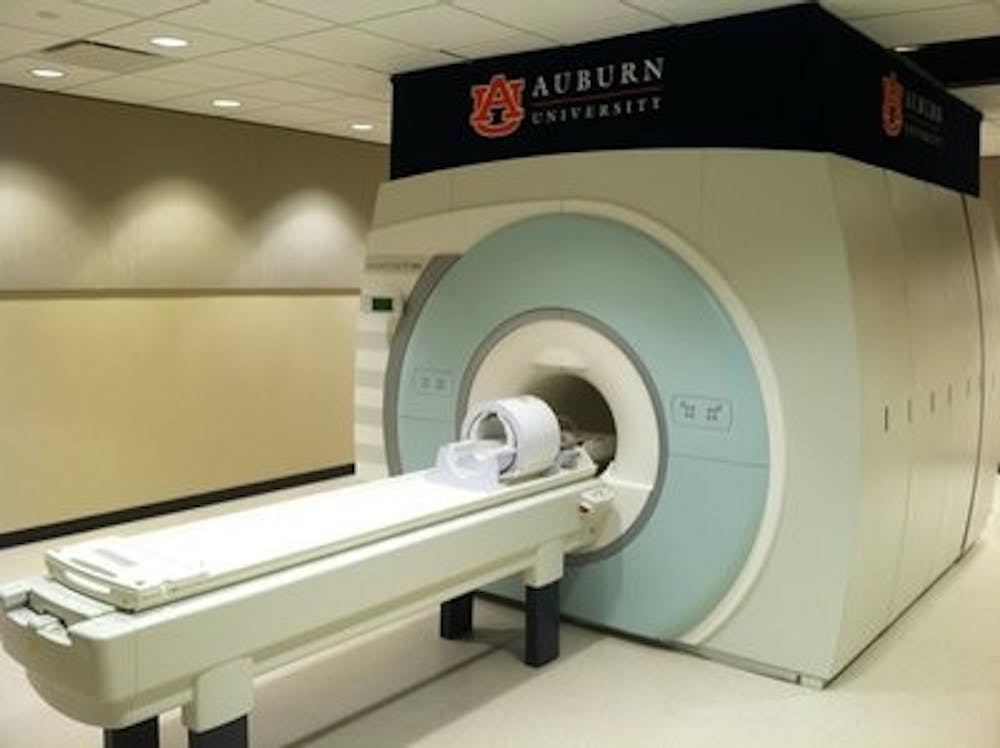Work began on Auburn's Magnetic Resonance Imaging Research Center in November 2010 after Auburn received a portion of the largest educational offering in state history, the 1.07 billion State of Alabama Educational Bond in 2007. According to Thomas Denney, the center director, the center will be finished in mid-late July when the second MRI scanner is fully set up.
The $21 million, 45,000-square-foot building contains two Siemens MRI scanners, a 3 Tesla, the highest level magnet approved by the FDA for clinical use and a 7 Tesla, only approved for research and one of the 28 MRI scanners of that strength in the world.
According to Denney, the research center utilizes a self sustaining business model, developed by Ed Lewis, the Samuel Ginn College of Engineering Special Projects Officer for Technology Advancement, to generate income for maintenance and salaries to operate in future from leasing the scanners during the day to other medical centers, such as the East Alabama Medical Center.
The research center allows for graduate and undergraduate students to participate in research, as well as faculty. Nicholas Koullas, senior in biomedical sciences major and pre-medicine, will be working on a project to see how scarcity affects the brain. He said a subject views an image, such as a 50 percent off sale for one day and the MRI scanners are able to show which parts of the brain light up when viewing that image.
Koullas said, "I like working with the brain. I've thought about going into neurosurgery or neurology so this is just really interesting to me.
Jeffrey Katz, psychology professor involved with research at the center, said students that are prepared and trained to be able to use MRIs will be more marketable down the road.
Katz is currently working on a project involving military with post traumatic stress disorder or post concussive syndrome.
The project uses an emotional regulation task to show pictures that are emotionally provocative, such as a tank exploding and view which parts of the brain are activated when enhancing or suppressing the image. To enhance the image the subject would personalize in a way that affects him or her, such as imagining a friend involved in the explosion or suppress the image by imagining the friend is not hurt or disabled. The MRI scanners allow the researchers to compare which parts of the brain are activated in military with and without stress disorders.
Katz said the next stages is to study people who go through therapy and the researchers are hoping to be able to show if the therapy is successful by the subject getting better at regulating responses to images.
Katz said, "It's a big impact and it's great for the university. It's an important issue now in our society. [...] We're hoping the pay off its going to be very good for people who suffer from trauma and for our soldiers. One of the unique things that we have to offer at Auburn is that we're so close to Fort Benning and Fort Rucker. [...] We're the only one in this area that really will be tapping into, can tap into the bases. So we're hoping we're going to really be able to help in the future of the science and for the soldiers."
Do you like this story? The Plainsman doesn't accept money from tuition or student fees, and we don't charge a subscription fee. But you can donate to support The Plainsman.




